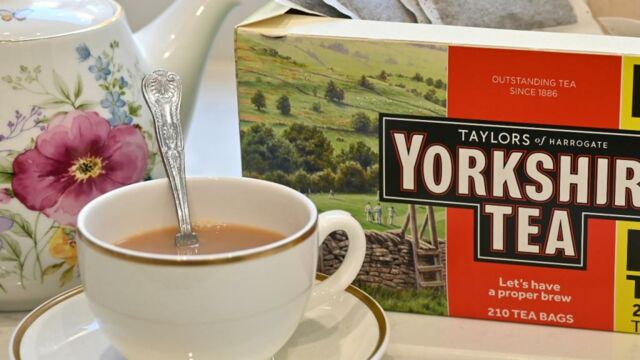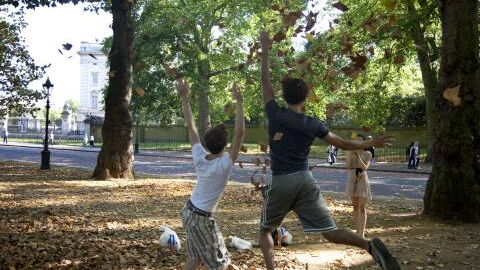There’s nothing like a cup of tea in the morning - or, for that matter, in the afternoon or even evening if you aren’t too caffeine-sensitive. It’s no secret that Brits love a brew, which is why the news this morning has the nation concerned. Sainsbury’s, one of the UK’s largest supermarkets, has issued a statement to let the masses know that their tea habit may be at risk: ‘nationwide’ problems could impact the availability of black tea on the shelves.
Discover our latest podcast
A sign in one of Sainsbury’s shops read:
We are experiencing supply issues affecting the nationwide supply of black tea. We apologise for any inconvenience and hope to be back in full supply soon.
The issue is not limited to this one shop as the problem lies in the transport of the product. Here’s what is causing the issue, how long we can expect it to last, and how people have reacted.
Problem in the transport of tea
The tea that we drink is largely grown in Asia and East Africa, with China, India, Sri Lanka and Kenya making up 75% of the world’s production. The dried herb-like substance we see in our teabags and pots comes from Camellia sinensis, a leafy green shrub. Its leaves, buds and stems can all be used to make the popular infused drink. There are, of course, other plants that can be used to make drinks we refer to as tea, such as this one which can dangerously increase your risk of lung cancer.
However, violence by Houthi rebels has caused most shipping companies to change the route they use to bring tea to the UK. Instead of heading towards the Suez canal, they have redirected shipments around the Cape of Good Hope at the foot of Africa - adding around 10-14 days on to the transportation time.
How long will this shortage last?
Andrew Opie, director of food and sustainability at the British Retail Consortium, has said that there is no need for major concern:
There is temporary disruption to some black tea lines, but the impact on consumers will be minimal as retailers are not expecting significant challenges.
Indeed, this is not as new an issue as some reporting is making it out to be: Sparsh Agarwal, who owns several tea gardens in Darjeeling, India, told inewspaper in December that tea shipments were being delayed due to the disruption:
We sent shipments to the US and Europe two weeks ago, but they are still in Mumbai port and have not been picked up yet.
How people are reacting to the news
Brits are, obviously, shocked by this news, with some fearing that such an announcement will lead to frenzied stocking up of the product reminiscent of the toilet paper panic that happened during Covid times. After the shortage was announced on TV this morning, one user wrote on X:
Nothing like a warning on TV to CREATE a shortage!
Meanwhile, others have been quick to point out that this is a very silly problem to be focusing on given that the root of the issue lies with much more concerning violence in the Red Sea. Journalist @HarrietSergeant quipped:
Things have now got serious. A nationwide shortage of black tea due to the Houthi blockade.
Both the UK and the US have launched strikes over recent weeks on the Yemen-based Houthis in a bid to stop their attacks.
Read more:
⋙ This dark 2024 prediction from a 1920s newspaper is scarily close to the truth
⋙ You should never drink coffee before going shopping, here's why
⋙ Coffee: This is what drinking 4 cups a day does to your body, according to new study
Sources used:
The Telegraph: Britain faces tea shortages after Red Sea shipping disruption
The Guardian: UK shoppers could face tea shortages due to trade route disruptions
X















